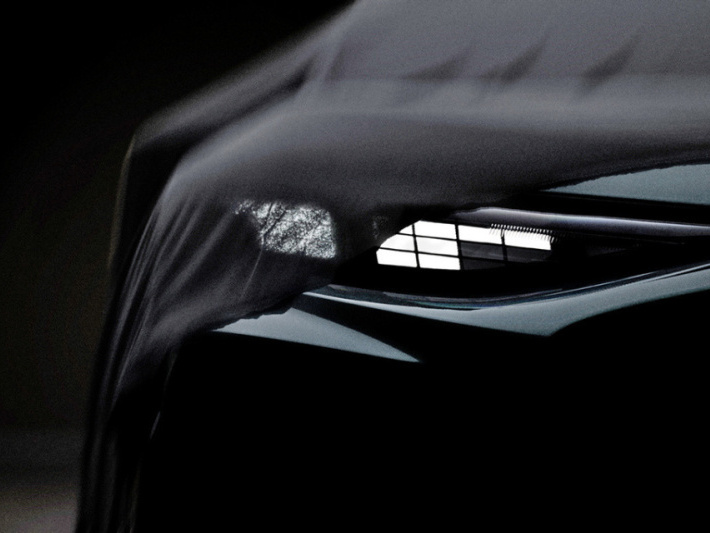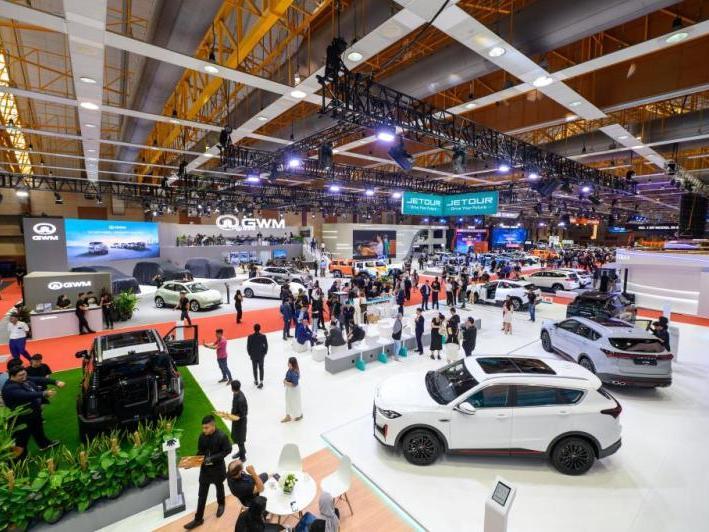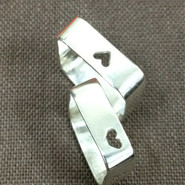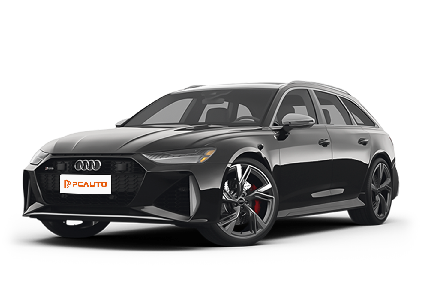Q
Is the Audi RS6 rare?
The Audi RS6 is indeed a relatively rare high-performance vehicle in Malaysia. This is mainly because it belongs to the high-end performance segment of Audi's RS series. It has a niche positioning and comes with a relatively high price tag, so generally, only car enthusiasts with an extreme passion for performance would consider buying it. The RS6 is powered by a 4.0-liter V8 twin-turbo engine, which can generate over 600 horsepower. Paired with the quattro all-wheel-drive system, it boasts remarkable performance. However, its production volume is limited, and the number of units imported into Malaysia is also small, so it's not often seen on the roads.
In comparison, German performance cars of the same class, such as the BMW M5 or the Mercedes-Benz E63 AMG, might be a bit more visible in Malaysia. Nevertheless, the RS6 still has a loyal fan base thanks to its unique station wagon body style and raw performance. If you spot an RS6 in Malaysia, you've truly encountered a rare performance beast. After all, high-performance station wagons are a niche choice in the local market, and the Audi RS6 stands out among them. Its rarity also makes it a dream car for many car enthusiasts.
Special Disclaimer: This content is published by users and does not represent the views or position of PCauto.
Related Q&A
Q
Is the Audi RS6 manual or automatic?
Currently, all models of the Audi RS6 come standard with an 8 - speed Tiptronic automatic transmission, and there is no manual transmission option. The combination of the 4.0-liter V8 twin-turbocharged engine and the automatic transmission in this high-performance station wagon can deliver 600 horsepower. It only takes 3.6 seconds to accelerate from 0 to 100 km/h. The automatic transmission has an extremely fast shifting speed and can withstand a huge amount of torque, which is very suitable for the congested urban traffic in Malaysia as well as the needs of high-speed cruising. In fact, most high-performance vehicles nowadays use automatic or dual-clutch transmissions because the computer-controlled shifting is more accurate and faster than manual operation. For models like the RS6 that emphasize both daily practicality and ultimate performance, the automatic transmission can balance comfort and sporty performance. The hot and rainy climate in Malaysia also makes the stable characteristics of the automatic transmission more favorable. If you want to experience the fun of manual shifting, you can consider some models in the Audi S series or entry-level performance cars. However, as the flagship station wagon, the automatic transmission is indeed the most reasonable choice for the RS6.
Q
What is the comfort mode on the Audi RS6?
The Comfort Mode of the Audi RS6 is a preset option in the driving mode selection system. It's mainly optimized for daily driving scenarios. By adjusting parameters such as suspension damping, steering assist, transmission shifting logic, and throttle response, it offers a smoother driving and riding experience. In the common urban congested traffic conditions in Malaysia or during long-distance drives, this mode can effectively reduce the firmness of the chassis, absorb road bumps, and at the same time reduce the aggressive feedback from the engine and exhaust system. It's suitable for family trips or situations where you need a relaxing drive.
To expand a bit, the driving modes of the RS6 usually also include Dynamic Mode, Auto Mode, and Individual Mode. The Dynamic Mode enhances the performance, while the Comfort Mode focuses more on fuel economy and quietness. For Malaysian users, the Comfort Mode is particularly useful in hot weather and mixed road conditions. It allows you to enjoy the high-performance essence of the RS6 while also taking into account daily practicality, such as a gentle air-conditioning start and a more linear power output.
It should be noted that there may be slight differences in the mode tuning of RS6 models from different years, but the core logic always revolves around balancing performance and comfort.
Q
What is the top speed of the Audi RS6?
As a high-performance station wagon, the officially announced top speed of the Audi RS6 is 280 km/h. If you opt for the Dynamic Plus package, it can be increased to 305 km/h. This is thanks to its 4.0-liter V8 twin-turbocharged engine, which can output 600 horsepower and 800 Nm of torque. Paired with an 8-speed Tiptronic transmission and the quattro all-wheel-drive system, this car can still demonstrate excellent stability and acceleration performance under the tropical climate and changeable road conditions in Malaysia. For Malaysian car enthusiasts, the RS6 not only offers the practical space of a station wagon but also has the performance of a supercar, making it very suitable for players who pursue both speed and practicality. It's worth mentioning that although the RS6 has a very high top speed, traffic rules still need to be followed on Malaysian roads. After all, safe driving is the most important thing. In addition, the chassis tuning and aerodynamic design of the RS6 have also been specially optimized, allowing it to maintain excellent handling even at high speeds, enabling drivers to experience Audi's profound technical accumulation in the field of performance cars.
Q
Does the RS6 have 4 wheel steering?
Yes, the Audi RS6 Avant is indeed equipped with a four-wheel steering system (4 Wheel Steering). This technology can enhance the vehicle's stability when cornering at high speeds. Meanwhile, it can reduce the turning radius when driving at low speeds, making the driving more flexible. It's particularly suitable for the narrow roads in Malaysian cities or winding mountain roads. The four-wheel steering system allows the rear wheels to turn in coordination with the front wheels. At high speeds, the rear wheels turn in the same direction as the front wheels to increase stability, while at low speeds, the rear wheels turn in the opposite direction to improve flexibility. In addition to the RS6, high-performance or luxury models like the Porsche 911 and BMW 7 Series also adopt similar technologies. And this configuration is becoming more and more common in high-performance models in the Malaysian market. Especially for car owners who pursue driving pleasure and practicality, four-wheel steering can significantly enhance the performance in daily driving and intense maneuvers. If you're considering buying the RS6 or other high-performance cars, you can take a test drive to experience the actual effect of four-wheel steering and feel its advantages on different road conditions.
Q
What is the difference between RS6 and RS6 performance?
The main differences between the Audi RS6 and the RS6 Performance lie in power tuning and performance. The RS6 is equipped with a 4.0-liter V8 twin-turbocharged engine, delivering 600 horsepower and 800 Nm of torque. In contrast, the RS6 Performance boosts the power to 630 horsepower and 850 Nm of torque. At the same time, it optimizes the turbo response and exhaust system, shortening the 0 - 100 km/h acceleration time to 3.4 seconds (3.6 seconds for the regular version). Additionally, the Performance version comes standard with a sports differential and a more aggressive chassis tuning, paired with 22-inch wheels and high-performance tires, offering more precise handling.
For Malaysian car enthusiasts, both models are suitable for local road conditions. However, the Performance version is more suitable for those who pursue a track-like driving experience. Moreover, both models require attention to the heat dissipation management of the turbo engine in high-temperature environments. It's worth mentioning that the Audi RS series are fully imported performance cars in Malaysia. They are relatively expensive but have a stable resale value. When purchasing, you can compare the maintenance packages offered by local authorized dealers. These high-performance station wagons combine practicality with brute force, and are the so - called "ultimate grocery - getting cars" in the hearts of many car enthusiasts.
Q
Does the Audi RS6 have air suspension?
The Audi RS6 is indeed equipped with an advanced air suspension system (Audi Air Suspension). This system can provide a more flexible driving experience on Malaysian roads. By adaptively adjusting the stiffness of the shock absorbers and the height of the vehicle body, it combines both sport performance and comfort. In the dynamic driving mode, the suspension lowers the vehicle body to enhance stability, while when encountering rough roads, it can raise the chassis to improve passability, making it highly suitable for Malaysia's diverse road conditions.
It's worth noting that the air suspension is more costly compared to traditional steel springs, but it can significantly enhance the sense of luxury and adaptability. Similar configurations are also available in performance cars of the same class, such as the Mercedes - AMG E63 or the BMW M5.
For Malaysian car owners who are keen on modifications, it is recommended to regularly check the suspension air pump and seals. The tropical climate may accelerate the aging of rubber components. During the original - factory maintenance, potential problems can be identified in advance through ODB diagnosis.
Q
Does the RS6 have dual clutch?
The Audi RS6 doesn't come with a dual-clutch transmission. Instead, it's equipped with an 8-speed Tiptronic automatic transmission. This transmission is well-known for its smooth gear-shifting experience and excellent durability, which is especially suitable for high-performance wagons like the RS6, meeting the needs of both daily comfort and intense driving. For car enthusiasts in Malaysia, the powertrain combination of the RS6 performs stably in the tropical climate. Coupled with the quattro permanent all-wheel-drive system, it can easily handle the local rainy weather and complex road conditions.
It's worth mentioning that although dual-clutch transmissions (such as the S tronic used in the early Audi S/RS series) offer faster gear shifts, the Tiptronic has more advantages in handling high torque and long-term reliability, which is why the RS6 chooses it. If you're interested in the transmission technology of performance cars, you can pay attention to other models under the Volkswagen Group, such as the Porsche PDK or the Lamborghini ISR. They demonstrate the application characteristics of different transmission technologies in the high-performance field.
Q
Is the RS6 turbocharged?
Yes, the Audi RS6 is equipped with a turbocharged engine. Specifically, it uses a 4.0-liter V8 twin-turbocharged engine that can deliver powerful power and torque. This is also a typical configuration for Audi's high-performance models. In Malaysia, this car is favored by many car enthusiasts for its excellent performance and practicality, especially as it can provide a sports car-like driving experience while also being suitable for family use. Turbocharging technology improves the engine's intake efficiency by compressing air, thereby enhancing power output. The twin-turbo design further reduces turbo lag, making acceleration more linear and rapid. In addition to the RS6, turbocharging technology is also widely used in many high-performance cars and ordinary family cars, such as BMW's M series and Mercedes-Benz's AMG series. This technology not only boosts power but also optimizes fuel economy, which is very suitable for Malaysia's road conditions and driving needs. If you're interested in turbocharged cars, you can also learn about the tuning styles of different brands. For example, German cars focus more on the smoothness of power output, while some Japanese models may have an edge in response speed.
Q
Is the Audi RS6 petrol or diesel?
The Audi RS6 is a high-performance station wagon. Currently, all the versions available in the Malaysian market are equipped with gasoline engines. Specifically, it features a 4.0-liter V8 twin-turbocharged gasoline engine paired with a 48V mild-hybrid system, capable of delivering a powerful output of up to 600 horsepower. This engine is renowned for its outstanding performance and rapid response, making it an ideal choice for car owners who seek driving pleasure. Although Audi offers diesel options in other models, the RS6, as a performance-oriented vehicle, doesn't come in a diesel version, which aligns with its positioning that emphasizes sporty tuning and instant power output.
For Malaysian consumers, the gasoline-powered RS6 can not only meet daily driving needs but also showcase excellent acceleration performance on the highway. Meanwhile, Audi's Quattro all-wheel-drive system can adapt to the diverse local road conditions. It's worth noting that high-performance cars in Malaysia typically use gasoline as fuel, which is related to the local market preference and the stability of gasoline quality. Although fuel economy isn't the main selling point of the RS6, it still has a certain competitiveness among performance cars in the same class.
Q
Does the RS6 come in manual?
As a high-performance station wagon, the Audi RS6 currently doesn't offer a Manual Transmission version in the global market. The entire lineup is equipped with an 8-speed Tiptronic automatic transmission. This design better suits its positioning in terms of high performance and daily practicality. Especially in city road conditions like those in Malaysia, the automatic transmission can provide a smoother driving experience. Although the manual transmission has unique advantages in terms of driving pleasure, considering the power output of the RS6 (such as the latest 600-horsepower V8 twin-turbo engine) and the complexity of the four-wheel drive system, the automatic transmission can handle power distribution and shifting efficiency better. Malaysian car enthusiasts who prefer manual transmissions can focus on other performance models like the Honda Civic Type R or the Ford Focus RS, as these models still retain the manual option. In recent years, Audi has gradually phased out the manual transmission in its RS series, mainly to adapt to market demands and technological development trends. However, this doesn't affect the charm of the RS6 as an all-round high-performance vehicle. Its excellent acceleration performance and practicality are still highly favored by car enthusiasts around the world.
Popular Cars
Model Year
Car Compare
Car Photo
Latest Q&A
Q
What is a good tire pressure for a car?
The standard air pressure for car tires is typically between 30 and 35 PSI. The exact value should be referenced in the vehicle's user manual or the label on the driver's side door frame, as variations may exist depending on the vehicle model and tire specifications. Proper tire pressure is critical for driving safety. Insufficient pressure can lead to tire overheating and irregular wear, while excessive pressure may compromise grip and ride comfort. Given the region's hot climate, tire pressure naturally increases in high temperatures. It is advisable to check and adjust tire pressure when the tires are cool (e.g., in the early morning or after the vehicle has been parked for at least 3 hours). Tire pressure should be checked monthly at minimum, with increased frequency during long-distance travel or heavy-load conditions. Additionally, inspect the tread depth and surface for cracks or damage. Note that all tires sold locally must comply with national standards such as MS149:2018 and obtain SIRIM certification to ensure their performance and safety meet required specifications.
Q
What is the best-selling car in January 2025?
In January 2025, the best-selling car brand in Malaysia was Proton, with sales of 9,914 units and a market share of 19.7%, showing an increase compared to its full-year 2024 performance. Despite a year-on-year sales decline, Proton demonstrated strong export performance, with the X50 and S70 models serving as its primary export products. Based on full-year data, Perodua led the brand rankings with 359,904 units sold, while Proton secured second place with 151,561 units, reflecting the dominant position of domestic brands in the market. Notably, Malaysia's total new car sales surpassed 800,000 units in 2025, establishing it as Southeast Asia's top automotive market. B-Segment SUVs, C-Segment SUVs, and entry-level sedans constituted the mainstay models, alongside a gradual rise in hybrid and electric vehicle adoption. BYD emerged as a standout performer in the electric vehicle segment, though conventional fuel-powered vehicles maintained their market dominance.
Q
Which car brand has the best quality?
In the Malaysian automotive market, local brands Perodua and Proton stand out in terms of quality and consumer recognition. Perodua has maintained the top sales position for years due to its high cost-effectiveness and practical features. Models like Axia and Myvi are renowned for their fuel efficiency and durability, making them particularly suitable for daily family use. In 2024, its sales even surpassed Honda, reflecting consumers' high trust in its reliability.
Since being acquired by Geely, Proton has seen a significant enhancement in its technical strength. Models such as X70 and X50, which combine advanced configurations with reasonable pricing, have won a good reputation in the compact SUV market and outsold their competitors in the same segment.
International brands like Toyota and Honda remain competitive with their mature manufacturing processes and durability. Toyota's Hilux pickup and Honda's Civic are highly favored for their adaptability to tropical climates.
Overall, local brands are more in line with local needs and offer affordable prices (ranging from 30,000 to 150,000 Malaysian ringgit), while international brands have a slight edge in technical accumulation. Consumers can make trade-offs based on their budget and usage. It should be noted that the development of the new energy sector is relatively lagging behind; those seeking environmentally friendly technologies may need to consider imported models.
Q
What is the best brand for a second-hand car?
In the Malaysian used car market, Perodua, Proton, and Japanese brands such as Toyota and Honda are generally considered the top choices due to their high cost-performance ratio, durability, and extensive after-sales service networks. Budget-friendly models like the Perodua Myvi and Proton Saga are priced around 15,000 to 30,000 Malaysian ringgit, making them ideal for daily commuting, while mid-range models such as the Honda City and Toyota Vios (30,000 to 60,000 Malaysian ringgit) are renowned for their fuel efficiency and reliability. For those with a higher budget, pre-owned luxury vehicles like Mercedes-Benz or BMW (priced above 60,000 Malaysian ringgit) offer an enhanced driving experience, though their higher maintenance costs should be taken into account. Chinese brands like Geely (represented by Proton X70 and X50) have gained traction in recent years owing to their feature-rich offerings and localized production. When selecting a used car, it is essential to evaluate factors such as the vehicle's condition, age, and market dynamics. Opting for brands with high ownership volumes and readily available spare parts is advisable, along with engaging professional inspection services to verify the car's condition. Furthermore, older Mercedes-Benz models and Japanese vehicles are more prevalent in the used car market due to their longevity, but potential buyers should be mindful of the annual inspection mandates for cars exceeding 15 years of age.
Q
Which second-hand car is the most reliable?
In the Malaysian used car market, models with high reliability are primarily concentrated among Japanese brands and locally produced vehicles. The Perodua Myvi stands out as the top choice due to its affordability, low maintenance costs, and fuel efficiency (approximately 4.7L/100km). Models from 2005 to 2015 feature 1.3L or 1.5L engines paired with either 4-speed automatic or 5-speed manual transmissions, backed by ample parts availability. The Toyota Corolla and Hilux also demonstrate strong performance. The Corolla's 1.8L/2.0L naturally aspirated engines boast proven technology and low failure rates, making them ideal for family use, while the Hilux's diesel engine and robust chassis adapt well to diverse road conditions, particularly suiting rural or cargo needs. Mid-to-high-end models like the Lexus ES and Toyota Camry rank highly in reliability owing to their superior build quality, though buyers should pay attention to vehicle age and maintenance history. Additionally, older Mercedes-Benz and Honda models are prevalent in the used car market for their durability, but thorough inspections are essential to avoid potential issues stemming from inadequate maintenance in aging vehicles. It is advisable to verify service records before purchase and prioritize models under 10 years old with documented maintenance to ensure long-term reliability.
View MoreRelated News

Audi RS 6 Sportback e-tron will be released at the end of summer 2025!
RobertOct 23, 2024

Audi RS6 sedan version may return to compete fully with the BMW M5
WilliamNov 21, 2025

Audi TT Moment 2.0 Debuts This September on Porsche EV Platform
MichaelAug 1, 2025

Beyond Expectations: All-New Audi Q3 Coming June 16
RobertJun 13, 2025

Summarizing the 2025 Malaysia Auto Show, a large number of new cars were launched in Malaysia this year.
MichaelMay 12, 2025
View More


















Pros
Cons